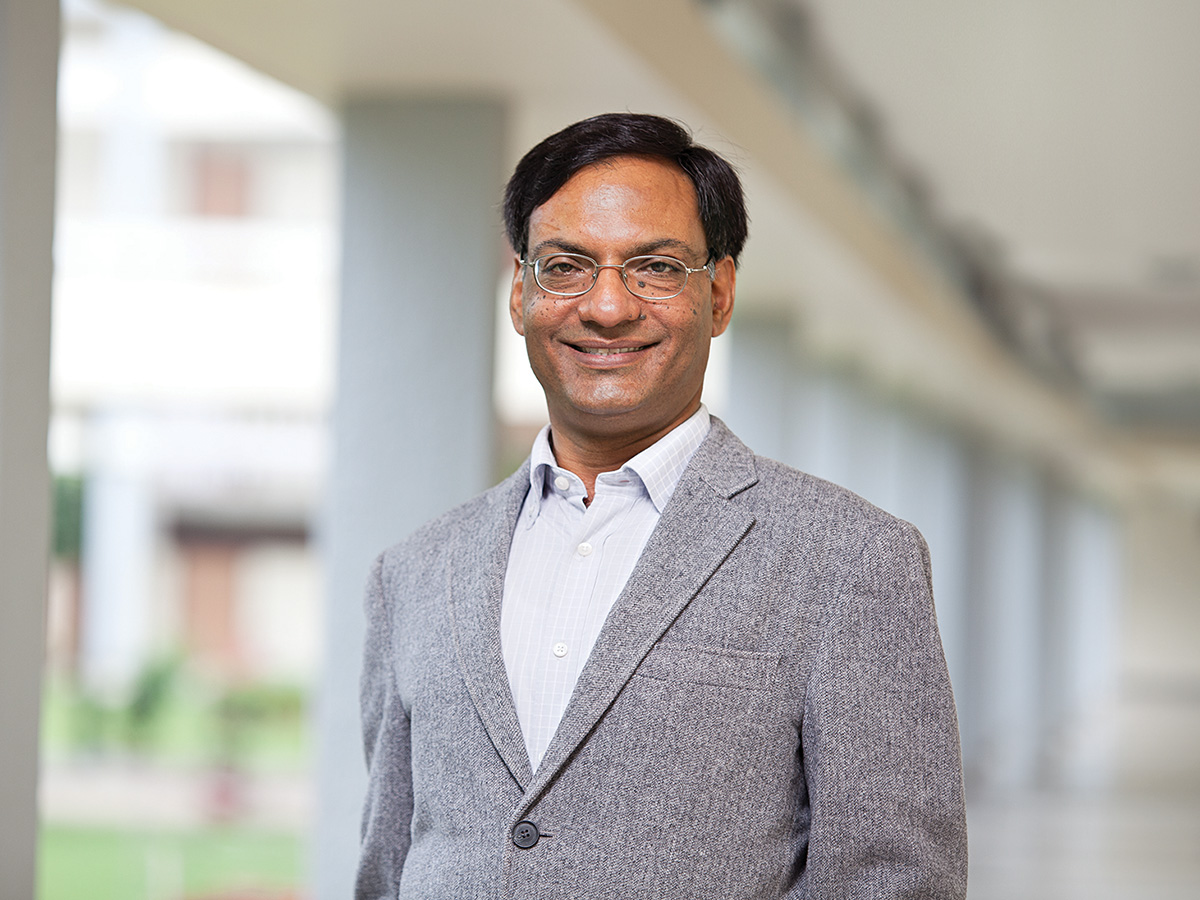The Infosys Prize 2010 for Engineering and Computer Science is awarded to Ashutosh Sharma in recognition of his fundamental contributions to the fields of surfaces and interfaces, adhesion, pattern formation, nanocomposites, materials science, and hydrodynamics, which have practical applications in such areas as energy storage, filtration, micro-electro-mechanical systems (MEMS) and optoelectronics.
Infographic:
Nanotech chronicles
Scope and Impact of Work
Professor Ashutosh Sharma is an engineering scientist whose work lies at the intersections of chemical and materials sciences and engineering, physics, and nanotechnology. The focus of his work lies in probing how chemical and physical properties of surfaces, interfaces and materials, especially at atomistic and nanometer length scales, influence the evolution of structure and patterns. Professor Sharma has conducted very elegant and quantitative experiments in combination with theory and simulation that have provided critical insights into how structures form, their stability and their properties which, in turn, address important connections between chemical synthesis and function.
The research he conducted has important use in such diverse application areas such as energy storage, filtration, micro- and nano-scale functional devices and optoelectronics. His work provides an excellent illustration of how research at the intersections of traditional disciplines can provide scientific and engineering discoveries of practical significance.
Bio
Ashutosh Sharma obtained a Bachelor's degree in Chemical Engineering from IIT Kanpur in 1982, his M.S. degree from The Penn State in 1984 and a Ph.D. from State University of New York at Buffalo in 1987, where he was a research faculty in ophthalmology until he joined chemical engineering at IITK in 1990. He became a full professor in 1997 and was the Head of Chemical Engineering (2003-06).
He is currently an Institute Chair Professor, J. C. Bose Fellow and Coordinator of the Nanoscience Center at IITK.
Ashutosh is a recipient of numerous awards including the TWAS Prize (2008), Bessel Research Award of the Humboldt Foundation (2006), Distinguished Alumnus Award of IIT Kanpur (2007), Homi Bhabha Award of the UGC (2007), Shanti Swarup Bhatnagar Prize (2002) and Lifetime Achievement Award of The Indian Science Congress Association (2010). The first two named awards have come to India in Engineering for the first time. He is an elected Fellow of TWAS -the Academy of Sciences for the Developing World and a Fellow of Indian Academy of Sciences since 1999; the Indian National Science Academy; the National Academy of Sciences, India; and the Indian National Academy of Engineering. He has been a member of editorial boards of Chemical Engineering Science, Journal of Colloid and Interface Science, Indian Chemical Engineer and Canadian Journal of Chemical Engineering.
More recently, Ashutosh has received Prof. C.N.R. Rao Bangalore INDIA NANO Science Award (2013), MRSI Distinguished Lecturership Award of Materials Research Society of India (2011-12) and The Syed Husain Zaheer Medal (a triennial award for Engineering and Technology) of Indian National Science Academy (2011).
He is an Associate Editor of ACS Applied Materials & Interfaces (2014-) and ASME Journal of Micro- and Nano-Manufacturing (2012-2014) and has been on the editorial boards of ACS Industrial and Engineering Chemistry Research (2013-2015) and Nanomaterials and Energy (2011-2013).
His current research interests include intersections of mechanics, materials and manufacturing on micro and nano-scales with emphasis on self-organization and instabilities; nano-patterning and functional multiscale interfaces for applications in energy, environment and health.
Timeline
Jury Citation
Professor Ashutosh Sharma has made scholarly scientific contributions in the broad areas of nanoscale surface pattern evolution, instability, and the dynamics of thin liquid and solid films and soft matter. These scientific studies have provided fundamental contributions to the fields of surfaces and interfaces, adhesion, structure evolution, nanocomposites, and hydrodynamics.
Professor Sharma's work also has important applications in energy storage, filtration, micro-electro-mechanical systems and optoelectronics. His research carried out entirely in India, has combined elegant experiments with theory and simulation, and has been widely published and cited in major international journals.

